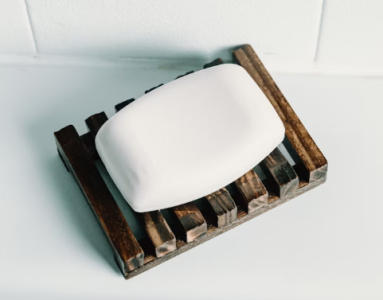Could the soap in your home be putting you at risk for sepsis? Nationwide recall issued
- Replies 0
For many of us, simple daily habits bring a sense of safety—like using a favorite soap to wash up or freshen the skin.
But a new nationwide warning is casting doubt on that comfort.
Several personal care products, trusted by many households and healthcare settings, are being pulled from shelves after officials discovered contamination that could pose serious health risks—especially for older adults and those with existing medical conditions.
It’s a recall worth knowing about before the items in question find their way into your hands again.
DermaRite Industries, a well-known manufacturer of personal care products, has voluntarily recalled specific lots of its DermaKleen, DermaSarra, KleenFoam, and PeriGiene products.
The reason? Contamination with a bacterium called Burkholderia cepacia—a name that might not roll off the tongue, but one you’ll want to remember.
These products, widely used in healthcare settings and sometimes found in home care kits, were distributed across the United States and Puerto Rico.
The recall is a proactive step, but it’s crucial for consumers—especially those with weakened immune systems—to take it seriously.
Let’s break it down: Burkholderia cepacia is a group of bacteria commonly found in soil and water.
For most healthy people, it’s not a big threat. But for anyone with a compromised immune system—think older adults, people with chronic illnesses, or those undergoing treatments like chemotherapy—it can cause severe infections.
In the worst cases, it can lead to sepsis, a life-threatening condition where the body’s response to infection spirals out of control.
Even for healthy individuals, using contaminated soap on broken skin or minor wounds could result in local infections.
But for those with weaker immune defenses, the bacteria can enter the bloodstream and cause sepsis, which requires immediate medical attention.
The recall covers a wide range of products and lot numbers, including:
For a full list of specific lot numbers and expiration dates, you can visit the FDA’s official recall page.
Also read: The infection everyone should take seriously: How a common UTI changed one woman’s life forever
If you have any of these products in your home, especially if you or a loved one is immunocompromised, stop using them immediately.
Also read: Popular health product recalled—here’s what you need to know
According to DermaRite’s recall notice, “Burkholderia cepacia complex in these products may result in serious and life-threatening infections.”
“The contaminated products may be used by immunosuppressed individuals or by people attending to immunosuppressed individuals. In healthy individuals with minor skin lesions, the use of the product will more likely result in local infections, whereas in immunocompromised individuals the infection is more likely to spread into the bloodstream leading to life-threatening sepsis.”
So far, no adverse events have been reported, but the company and the FDA are urging caution.
Read next: This everyday bathroom item was just recalled and health officials are issuing an urgent warning

Have you ever experienced a product recall? Do you have tips for keeping your home safe from contaminated products?
But a new nationwide warning is casting doubt on that comfort.
Several personal care products, trusted by many households and healthcare settings, are being pulled from shelves after officials discovered contamination that could pose serious health risks—especially for older adults and those with existing medical conditions.
It’s a recall worth knowing about before the items in question find their way into your hands again.
DermaRite Industries, a well-known manufacturer of personal care products, has voluntarily recalled specific lots of its DermaKleen, DermaSarra, KleenFoam, and PeriGiene products.
The reason? Contamination with a bacterium called Burkholderia cepacia—a name that might not roll off the tongue, but one you’ll want to remember.
These products, widely used in healthcare settings and sometimes found in home care kits, were distributed across the United States and Puerto Rico.
The recall is a proactive step, but it’s crucial for consumers—especially those with weakened immune systems—to take it seriously.
Let’s break it down: Burkholderia cepacia is a group of bacteria commonly found in soil and water.
For most healthy people, it’s not a big threat. But for anyone with a compromised immune system—think older adults, people with chronic illnesses, or those undergoing treatments like chemotherapy—it can cause severe infections.
In the worst cases, it can lead to sepsis, a life-threatening condition where the body’s response to infection spirals out of control.
Even for healthy individuals, using contaminated soap on broken skin or minor wounds could result in local infections.
But for those with weaker immune defenses, the bacteria can enter the bloodstream and cause sepsis, which requires immediate medical attention.
The recall covers a wide range of products and lot numbers, including:
- DermaKleen (800 ml and 1000 ml bag-n-box)
- DermaSarra (7.5oz bottles)
- KleenFoam (1000 ml bottles)
- PeriGiene (7.5oz bottles)
For a full list of specific lot numbers and expiration dates, you can visit the FDA’s official recall page.
Also read: The infection everyone should take seriously: How a common UTI changed one woman’s life forever
If you have any of these products in your home, especially if you or a loved one is immunocompromised, stop using them immediately.
- Check Your Cabinets: Look for any of the recalled products and compare the lot numbers and expiration dates to those listed in the recall.
- Stop Using Recalled Products: If you find a match, discontinue use right away.
- Contact Your Healthcare Provider: If you or someone in your care has used a recalled product and is experiencing unusual symptoms—such as fever, chills, unexplained fatigue, or signs of infection—contact your doctor promptly.
- Report Adverse Events: If you believe you’ve been affected, you can report your experience to the FDA’s MedWatch program online at www.fda.gov/medwatch/report.htm, by mail, or by fax. This helps regulators track the impact of recalls and prevent future incidents.
- Reach Out for More Information: DermaRite has set up a hotline for questions about the recall: 973-569-9000 x104 (Monday–Friday, 9 a.m.–5 p.m. ET), or you can email [email protected].
Also read: Popular health product recalled—here’s what you need to know
According to DermaRite’s recall notice, “Burkholderia cepacia complex in these products may result in serious and life-threatening infections.”
“The contaminated products may be used by immunosuppressed individuals or by people attending to immunosuppressed individuals. In healthy individuals with minor skin lesions, the use of the product will more likely result in local infections, whereas in immunocompromised individuals the infection is more likely to spread into the bloodstream leading to life-threatening sepsis.”
So far, no adverse events have been reported, but the company and the FDA are urging caution.
Read next: This everyday bathroom item was just recalled and health officials are issuing an urgent warning
Key Takeaways
- A nationwide recall has been issued for several DermaRite soap products, including DermaKleen, Dermasarra, Kleenfoam, and Perigiene, due to contamination with Burkholderia cepacia, a bacterium that can cause serious infections, especially in people with weakened immune systems.
- The affected products have been distributed throughout the United States and Puerto Rico and are commonly used in health care settings for handwashing and skin care.
- While there haven’t been any reports of illnesses linked to the recall so far, people—particularly those who are immunocompromised—are urged to stop using the recalled products immediately and contact their healthcare provider if they have any concerns.
- Adverse reactions can be reported to the US FDA’s MedWatch program, and further information about the recall (including which product lots are affected) is available on the FDA website and from DermaRite directly.







